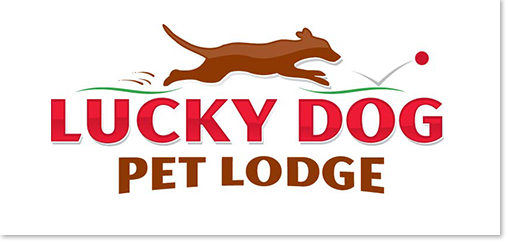The holidays are here and for many of us that means big gatherings with lots of food. Whether you plan on sharing that food with your pet or she sneaks some scraps on her own, it’s important to know what is and isn’t safe for your dog to eat. And of course, you’ll also want to know what to do in case she sinks her teeth into something she really shouldn’t have.
The American Veterinary Medical Association doesn’t recommend sharing any human food with your pet. Human foods are not the best for dogs and holiday food could be fatty which is hard for animals to digest. Bones can damage their digestive tract and sweets and other dishes could contain ingredients that are poisonous. But if you are going to celebrate the most wonderful time of the year right along with your dog, here’s a quick guide to some common holiday foods that are widely considered safe and some that you will want to avoid.
Safe For Dogs to Eat
Turkey: It is safe to share a little turkey with your dog. Just remove any excess fat and the skin and be sure to check for bones. Cooked bones can be a choking hazard and can even splinter during digestion, causing damage to your dog’s digestive tract. Also, with any meat avoid sharing anything with excessive salt and seasonings. Anything seasoned with onions or garlic should not be given to your dog.
Ham: Ham, although a deliciously famous Christmas dinner, is not the healthiest protein. It is high in sodium and fat but sharing a small piece would be OK.
Fish: Fish is a good option to share with your pup. It contains good fats and amino acids, it’s loaded with vitamins and protein. Just make sure it’s fully cooked and free of bones.
Shrimp: Shrimp is another holiday treat that is OK for dogs in moderation. Shrimp are high in antioxidants, vitamin B-12, and phosphorus, while low in fat, calories, and carbohydrates. Cook them fully and remove the shell (tail, head and legs).
Cashews & Peanuts: Cashews and peanuts are OK for dogs, but only a few at a time and only if they are unsalted.
Bread: Plain bread with no spices and no raisins won’t hurt your dog, but it also doesn’t provide any nutritional value.
Cheese: As long as your dog isn’t lactose intolerant, cheese can be a great treat in small to moderate quantities. Many cheeses are high in fat, so opt for lower-fat varieties like mozzarella.
Mashed Potatoes: Potatoes are sometimes used in dog food or treats so a little scoop should be fine for your dog. Just be aware of any other ingredients that were added. A dash of milk is probably OK, but avoid sharing anything with onions or garlic.
Corn: Corn is a very common ingredients in many dog foods. The cob, however, could cause an intestinal blockage, so make sure it is off the cob if you are going to share.
Popcorn: Dogs can eat popcorn. It should be unsalted, unbuttered and air-popped popcorn and only in moderation. Watch for any unpopped kernels which could be a choking hazard.
Not Safe for Dogs to Eat
Almonds & Macadamia Nuts: Macadamia nuts should never be given to your dog. They are some of the most poisonous foods for dogs and can cause vomiting, increased body temperature, inability to walk, lethargy and can affect the nervous system. Almonds may not necessarily be toxic to dogs like macadamia nuts are, but if not chewed completely they can block the esophagus or even tear the windpipe.
Chocolate: Dog should never eat chocolate. A little bit of chocolate can cause diarrhea and vomiting. A large amount can cause seizures, irregular heart function, and even death.
Cinnamon: Cinnamon can irritate the inside of dogs’ mouths, so it’s best to avoid. It can also lower a dog’s blood sugar too much and can lead to diarrhea, vomiting, increased, or decreased heart rate, and even liver disease. If they inhale it in powder form, cinnamon can cause difficulty breathing,
Garlic: Like onions, leeks, and chives, garlic is part of the Allium family, and can cause indigestion and can even be toxic.
Grapes: Grapes, raisins and wine should never be given to dogs. Be sure to watch out for them in stuffings, salads and other casserole-type dishes. They can cause kidney failure.
Alcohol: Even in tiny doses, alcohol can poison dogs. Keep boozy desserts out of your dog’s reach.
What if your dog eats something it shouldn’t?
The holidays are wonderful times full of celebration, but they can bring chaos, too. Quick action can save your pets life. Watch for signs of distress including sudden changes in behavior, depression, pain, vomiting, or diarrhea. If you suspect that your dog has eaten something he shouldn’t have, call your veterinarian or local veterinary emergency clinic immediately. You may also want to call the ASPCA Poison Control Hotline at 888-426-4435.




